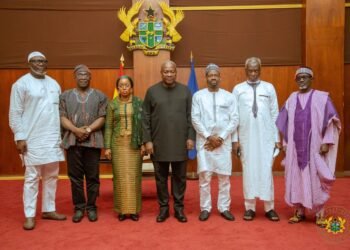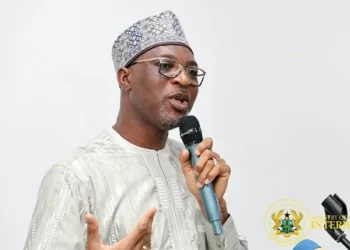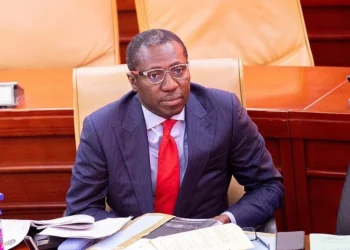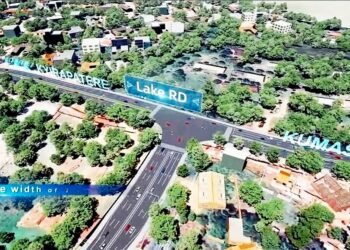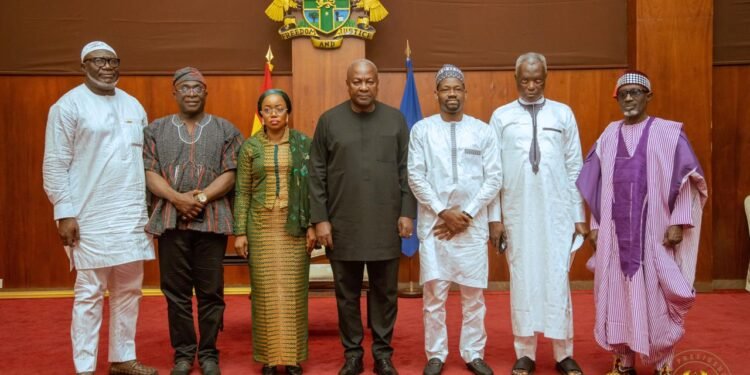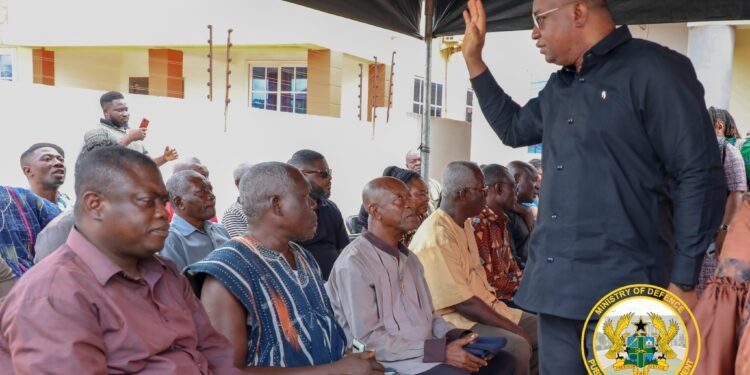Joyce Bawah Mogtari, Special Aide and Presidential Advisor to President John Dramani Mahama, has described Mahama’s Big Push as a visionary and people-centered development strategy designed to accelerate Ghana’s transformation.
According to her, this initiative will benefit all 16 regions of Ghana, focusing on infrastructure development, human capital investment, and social inclusion to ensure that no community or sector is left behind.
Mogtari emphasized that the program is carefully crafted to enhance road networks and transport systems, improve mobility, and expand access to essential services such as education and healthcare.
The overarching aim, she said, is to create a more equitable and inclusive economy where the benefits of growth are widely shared.
“The idea of a Big Push in development for Ghana is novel. First articulated by economist Paul Rosenstein-Rodan in the 1940s, the theory argued that underdeveloped countries often remain trapped in cycles of poverty because small, isolated investments cannot generate the scale of transformation needed for sustained growth.
“Instead, what is required is a massive, coordinated investment across multiple sectors, especially infrastructure projects, to receive funding from a ‘big push’ that creates the linkages driving industrialization, job creation, and self-sustaining progress.”
Joyce Bawah Mogtari
Mogtari noted that Mahama’s plan captures the essence of this theory, bringing it to life in Ghana’s contemporary context.
In both the 2020 and 2024 NDC manifestos, then-candidate John Dramani Mahama outlined a bold and ambitious $10 billion accelerated infrastructure program.
This comprehensive initiative focuses on transforming Ghana’s roads, railways, energy sector, healthcare system, and educational infrastructure.

According to Mogtari, the plan reflects Rosenstein-Rodan’s vision by acknowledging that strategic, large-scale investments are essential for breaking through structural bottlenecks that have long hindered Ghana’s progress.
“Mahama’s Big Push recognizes that piecemeal projects cannot deliver the rapid transformation that Ghana needs. By investing simultaneously across critical sectors, the plan seeks to stimulate innovation, drive demand, and catalyze economic growth.”
Joyce Bawah Mogtari
This approach, she added, mirrors the strategies later endorsed by global development institutions like the World Bank, which have supported large-scale infrastructure drives in emerging economies to kickstart industrialization and widespread job creation.
Big Push Channels Inclusive Growth, Prosperity
Joyce Bawah Mogtari further described the initiative as a roadmap for nationwide economic recovery.
She stated that the simultaneous investments envisioned under Mahama’s Big Push are expected to generate a ripple effect, creating opportunities for businesses, boosting employment, and enhancing living standards across the country.

“In doing so, it translates a historic development principle into a contemporary roadmap for Ghana’s transformation.”
Joyce Bawah Mogtari
The strategy, she emphasized, strikes a balance between equity and growth, ensuring that infrastructure development goes hand-in-hand with social programs that uplift vulnerable communities.
By combining investment with sustainability, the plan is designed to build a resilient economy that serves both present and future generations.
Mogtari pointed out that, unlike isolated projects that benefit only a few regions, this initiative will ensure every region of Ghana experiences tangible improvements in connectivity, access to services, and economic opportunity.
A Vision For Ghana’s Renewal
As Ghana faces mounting challenges such as unemployment, infrastructure deficits, and regional inequality, Mogtari asserted that Mahama’s Big Push offers a timely and comprehensive solution.
She praised its forward-looking approach, which draws on lessons from history while embracing innovation and modern governance practices.

“The result is a vision that blends the ambition of classical development theory with the practical needs of modern growth: equity with investment, jobs with opportunity, and infrastructure with sustainability.”.
Joyce Bawah Mogtari
Mogtari expressed optimism about the transformative potential of the plan, stressing that it goes beyond political rhetoric to deliver concrete results.
By creating strong linkages between sectors and regions, the initiative aims to lay the foundation for a self-sustaining economy that can compete on the global stage.
Mogtari concluded her remarks by reaffirming that exciting times are ahead for Ghana as the country prepares to implement this bold agenda.

With its focus on nationwide inclusion and rapid transformation, Mahama’s Big Push is positioned to address both immediate development needs and long-term economic challenges.
She called on all stakeholders, from policymakers to private sector players and ordinary citizens, to rally behind this initiative, emphasizing that its success will depend on collective effort and shared vision.
As the program takes shape, it has the potential to redefine Ghana’s development trajectory, turning the nation’s aspirations for industrialization, job creation, and social equity into reality.
READ ALSO: Oil Prices Edge Higher as Iraq-Kurdistan Pipeline Deal Nears Approval




